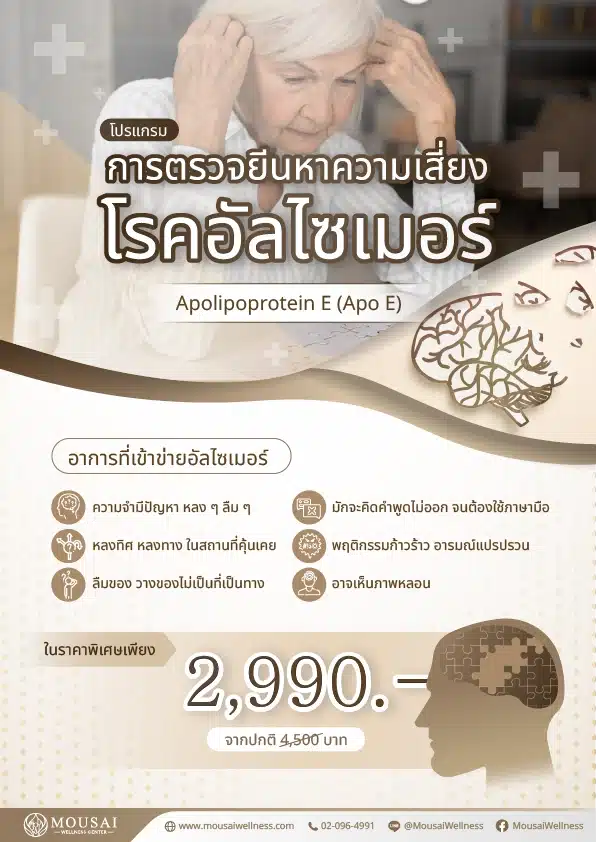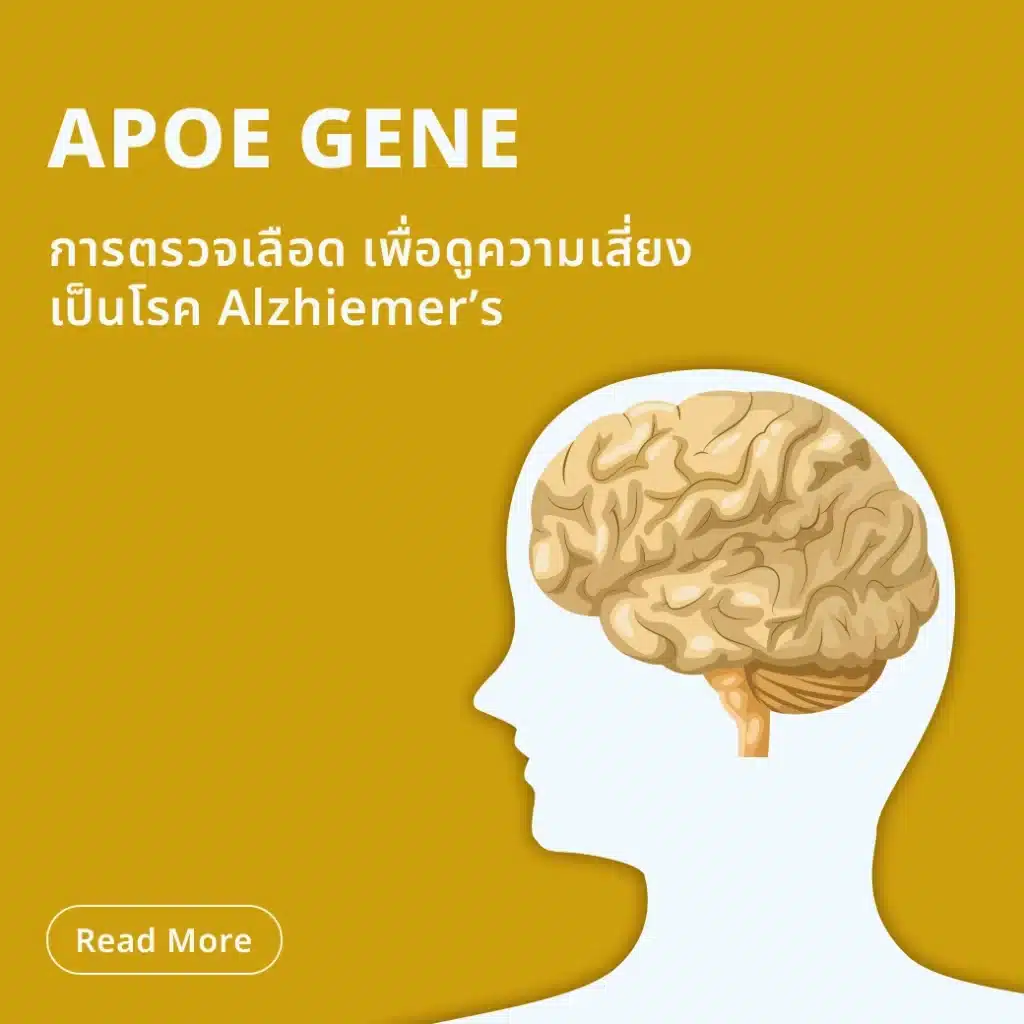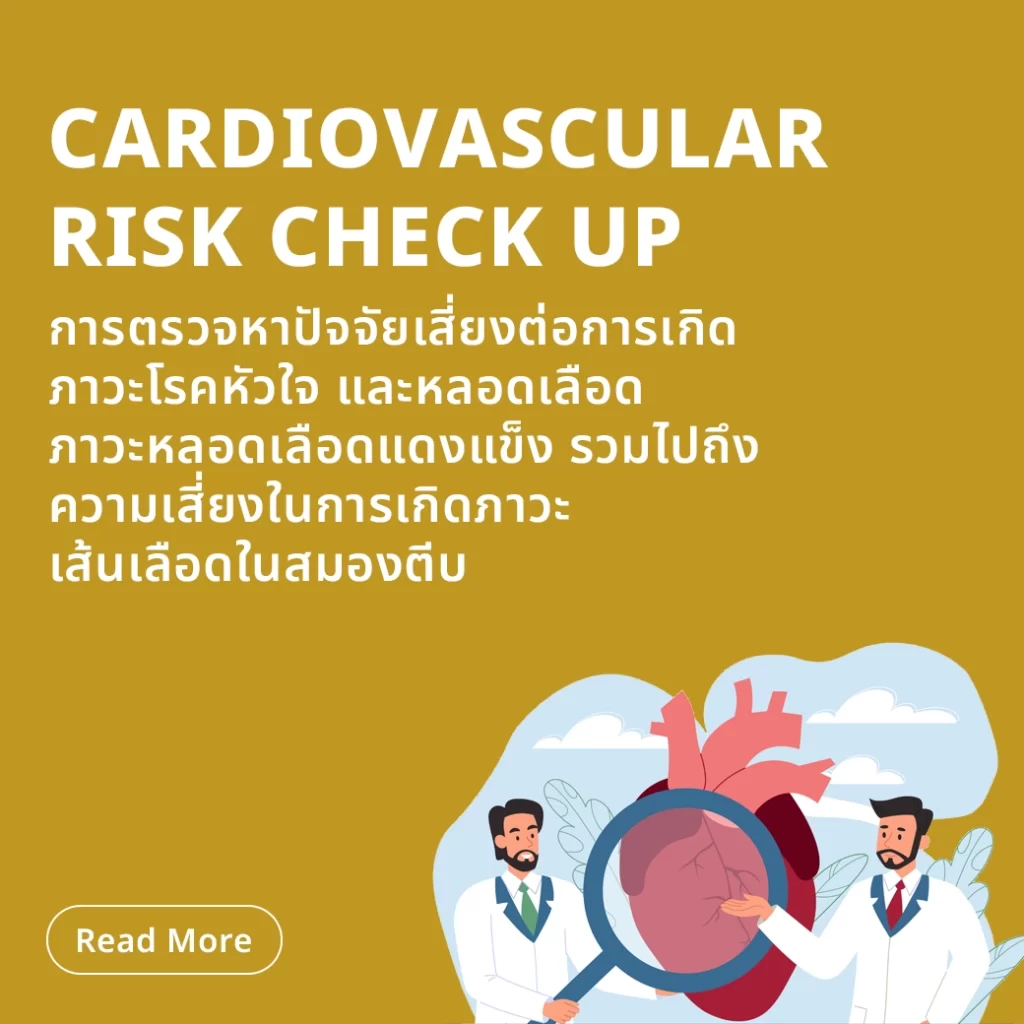
ApoE GENE
A Blood Test to Assess Risk of Alzheimer’s Disease
Alzheimer’s disease is the most common form of dementia, involving the progressive degeneration of neurons in the brain. Once it develops, the condition is irreversible. Patients gradually lose memory, decision-making ability, language skills, and motor coordination. In advanced stages, total memory loss and dependence occur.
According to the World Health Organization (WHO), Alzheimer’s prevalence increases with age. One in four individuals aged 85 is affected, and by 95, the number rises significantly. In Thailand, around 2–3% of individuals over 60 are diagnosed with Alzheimer’s. As the aging population grows, so does the incidence of this disease.
While there is currently no cure or definitive prevention, early detection and proper care can significantly improve a patient’s quality of life.
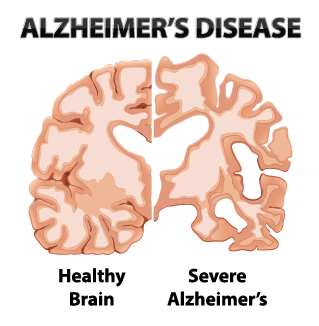
Risk Factors for Alzheimer’s Disease
Alzheimer’s disease is a progressive condition that worsens over time. Understanding both non-modifiable and modifiable risk factors can aid in prevention and early intervention.
Non-Modifiable Risk Factors
- Age: Increasing age is the strongest known risk factor. In a study of 1,000 people:
- Ages 65–74: 2 new cases annually
- Ages 75–84: 11 new cases annually
- Age 85 and above: 37 new cases annually
These numbers highlight the strong correlation between aging and Alzheimer’s.
- Family History and Genetics: Individuals with a family history of Alzheimer’s have a higher risk of developing the disease.
- Genetic Mutations: Variants in specific genes like ApoE, APP, PSEN1, and PSEN2 are linked to early-onset Alzheimer’s.
- Down Syndrome: Caused by an extra copy of chromosome 21, this condition significantly raises Alzheimer’s risk, with symptoms often appearing 10–20 years earlier than average.
- Gender: Women are slightly more likely than men to develop Alzheimer’s, possibly due to hormonal and longevity factors.
Modifiable (Acquired) Risk Factors
- Severe Head Injury: Traumatic brain injuries may increase vulnerability to Alzheimer’s in later life.
- Sleep Disorders: Conditions like obstructive sleep apnea are linked to a higher risk of developing Alzheimer’s due to impaired brain detoxification during sleep.
- Lifestyle and Comorbidities:
Poor lifestyle choices and chronic illnesses increase risk:- Sedentary lifestyle
- Smoking
- Obesity
- Type 2 diabetes
- High blood pressure and cholesterol
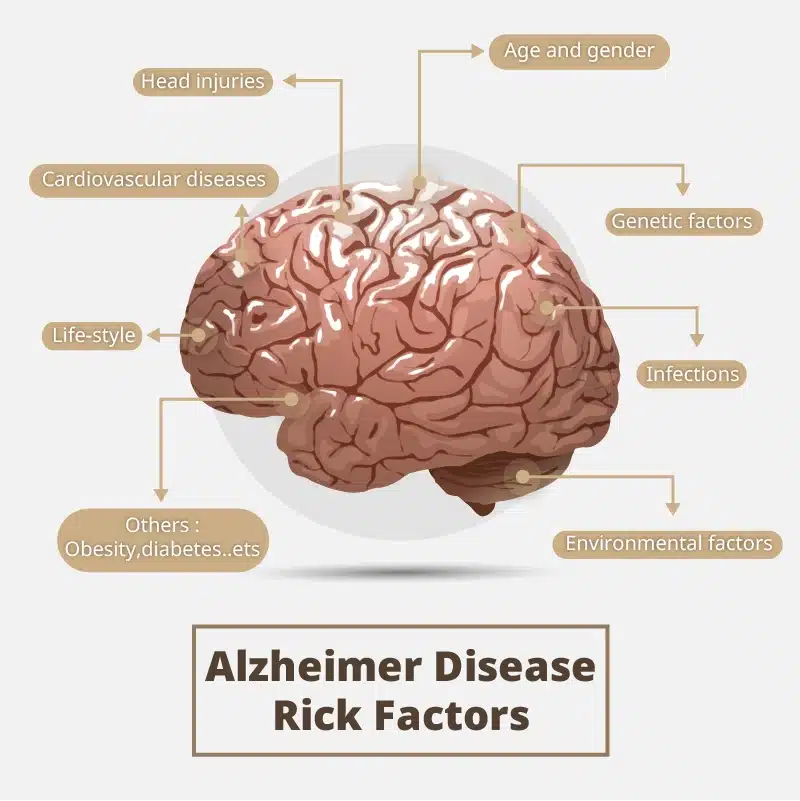
Self-Observation: Early Signs of Alzheimer’s Disease
- Memory Loss Disrupts Daily Life: Forgetfulness may lead to arguments with family members as it begins to interfere with everyday activities.
- Confusion About Time and Place: Individuals may become disoriented, such as being unable to find their way home after going out.
- Decreased Ability to Make Judgments: Impaired decision-making abilities are common in early stages.
- Changes in Mood and Personality: Unusual shifts in mood or personality may occur, such as becoming anxious, suspicious, or withdrawn.
- Difficulty Recognizing Familiar People: Forgetting the names of close acquaintances or family members can be a significant sign.
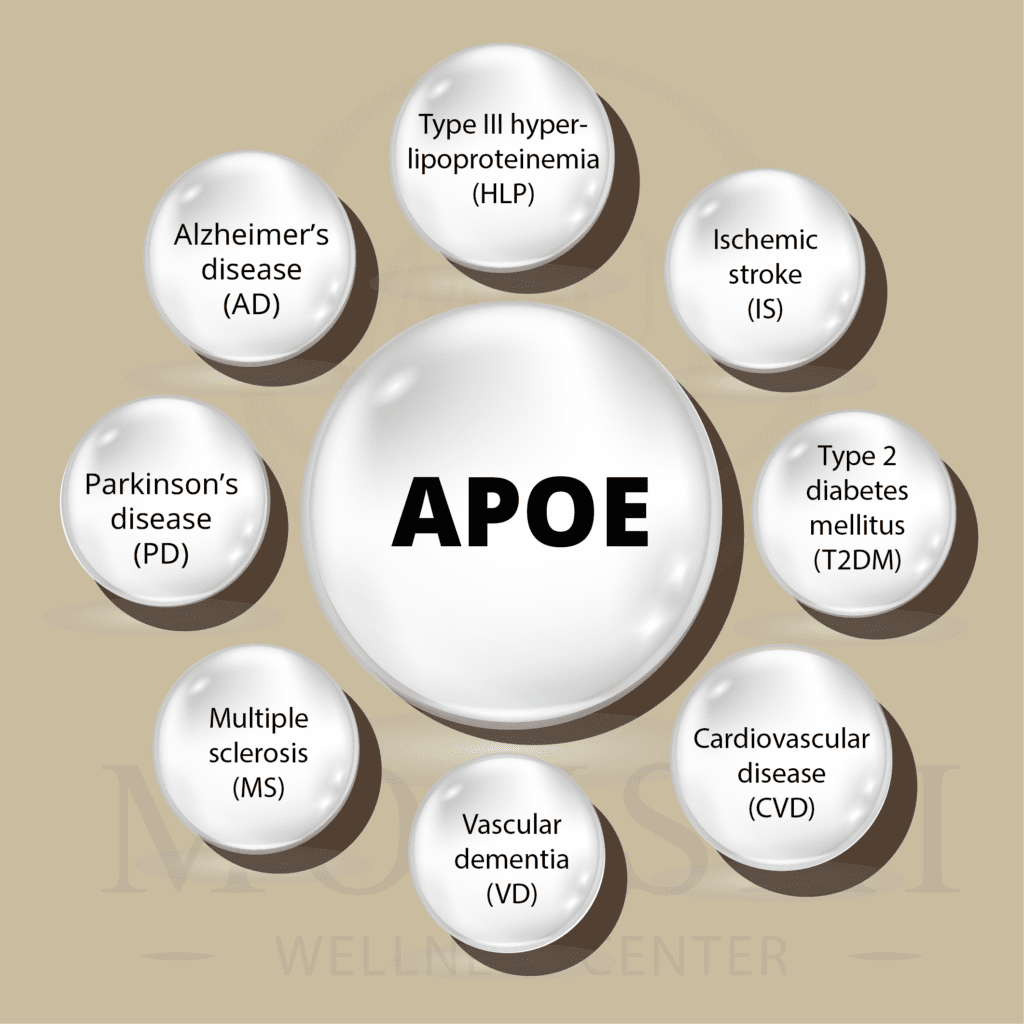
Apolipoprotein E (ApoE) Genetic Test: Assessing Future Risk of Alzheimer’s Disease
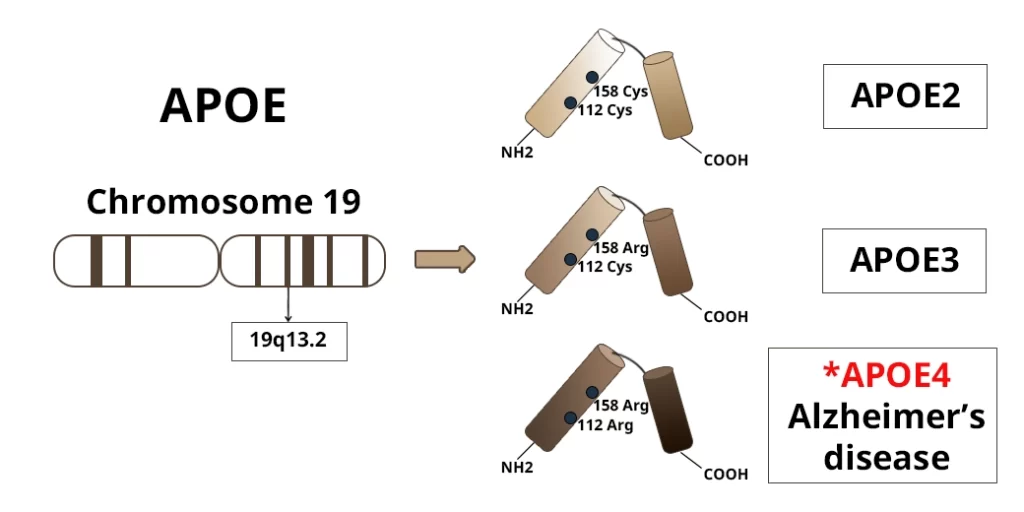
What is APOE?
Apolipoprotein E (APOE) is a protein involved in the transport of fats, lipids, and other substances to and from various organs in the body. There are three common forms of this gene: E2, E3, and E4, each with different functional capabilities.
Studies have shown that the accumulation of beta-amyloid protein in nerve cells is associated with an increased risk of developing Alzheimer’s disease. APOE plays a crucial role in clearing beta-amyloid from nerve cells. However, each APOE variant differs in its ability to remove beta-amyloid. Individuals with APOE variants that are less effective at clearing beta-amyloid tend to experience more accumulation of this protein in the brain, thus increasing their risk of developing Alzheimer’s disease.
The different APOE variants associated with the risk of developing Alzheimer's disease can be summarized as follows:
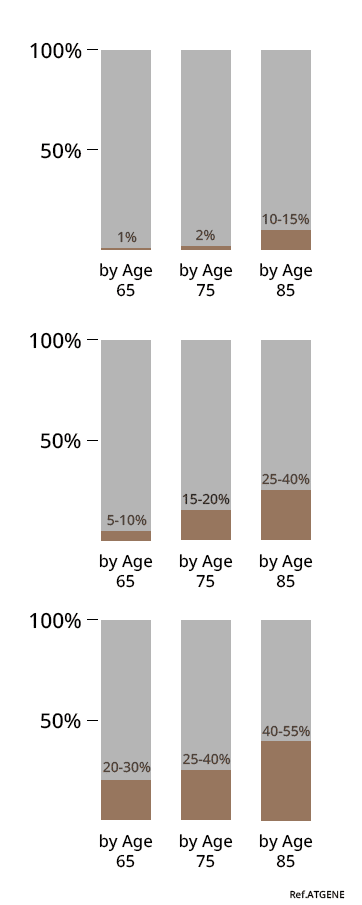
- The ApoE gene has three major variants: ApoE-2, ApoE-3, and ApoE-4.
- APOE-2 is considered a protective gene,
- APOE-3 is the most common variant found in the general population, and
- APOE-4 is considered a risk-factor gene for Alzheimer’s disease.
ApoE gene interpretation
– E3/E3 has an average risk of developing Alzheimer’s disease, comparable to the general population.
– E2/E2 or E2/E3 carries a 0.6 times lower risk of developing Alzheimer’s disease compared to the average.
– E2/E4, E3/E4, or E4/E4 carries a 15 to 20 times higher risk of developing Alzheimer’s disease compared to the average.
Preparation Before the Test
- No need to fast or avoid food and water
- Get adequate rest before sample collection
- Test type: Blood sample
- Result time: 3 working days
